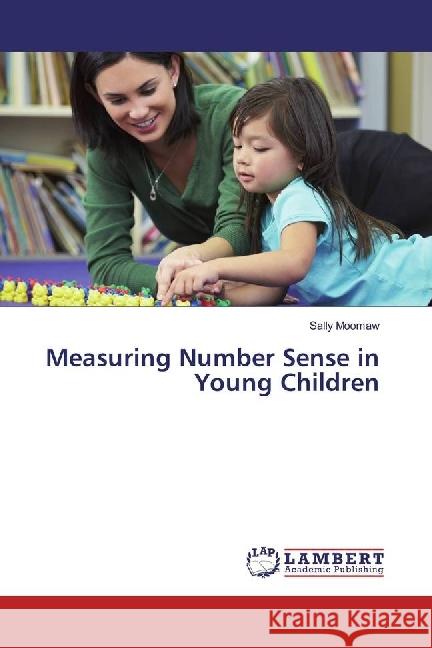Measuring Number Sense in Young Children » książka
Measuring Number Sense in Young Children
ISBN-13: 9783330010628 / Angielski / Miękka / 2016 / 116 str.
Accurate assessment of preschool children is challenging, with studies of dynamic measures of early math performance missing from the field. Therefore, curriculum-based measures that inform planning and instructional decisions are of particular interest. The purpose of this research was to evaluate a constructivist mathematics curriculum-based measure (MCBM) for assessing number sense in preschool children. The hypothesis was that six measurable variables-quantification level, counting skills, set comparison, numeral recognition, combining sets, and patterning-would make significant contributions to the latent construct of number sense. The measurement tool was an interactive game consisting of teddy bear counters and a series of cards in a standardized order, played between assessor and a child. The sample consisted of 108 children, ages 3-5 years. Confirmatory factor analysis, used to evaluate the hypothesized model, indicated a good model fit: 2(3,N=108)=4.246, p=.236; NFI=.990; CFI=.997; and RMSEA=.062. Standardized path coefficients ranged from .71 to .88. The results suggest that the MCBM was a valid and reliable measure of number sense for this sample.











